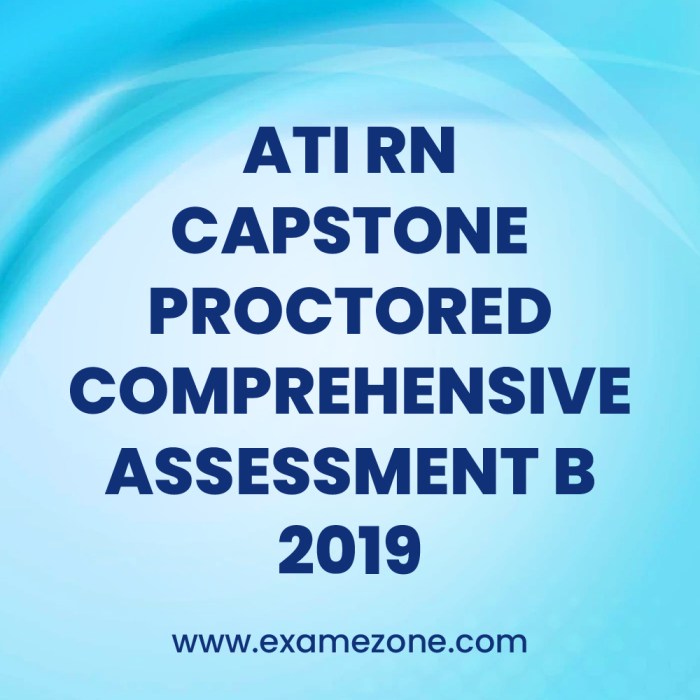The ATI Capstone Comprehensive Assessment B is a crucial evaluation tool for nurses seeking to demonstrate their proficiency in various nursing specialties. This assessment encompasses a wide range of content areas, challenging nurses to showcase their critical thinking, problem-solving, and clinical judgment skills.
This guide provides an in-depth overview of the ATI Capstone Comprehensive Assessment B, covering its structure, content areas, assessment format, preparation strategies, and post-assessment analysis. By understanding the nuances of this assessment, nurses can effectively prepare for and excel in this challenging examination.
Capstone Assessment Overview

The ATI Capstone Comprehensive Assessment B is a standardized exam designed to evaluate the clinical knowledge and skills of nursing students at the end of their nursing program. It is a comprehensive assessment that covers a wide range of nursing content areas and is used by many nursing schools and hospitals to assess the readiness of students for entry-level nursing practice.
Assessment Structure, Ati capstone comprehensive assessment b
The assessment consists of 150 multiple-choice questions and has a time limit of 3 hours. The questions are divided into the following content areas:
- Medical-Surgical Nursing (50%)
- Obstetrics (15%)
- Pediatrics (15%)
- Mental Health Nursing (10%)
- Pharmacology (5%)
- Leadership and Management (5%)
User Queries: Ati Capstone Comprehensive Assessment B
What is the purpose of the ATI Capstone Comprehensive Assessment B?
The ATI Capstone Comprehensive Assessment B is designed to evaluate the knowledge, skills, and critical thinking abilities of nurses in various nursing specialties, including medical-surgical nursing, obstetrics, pediatrics, and mental health nursing.
How is the ATI Capstone Comprehensive Assessment B scored?
The assessment is scored based on the number of correct answers, with a passing score typically set at 80%. The results are provided in a scaled score that reflects the nurse’s performance relative to other test-takers.
What are some effective study strategies for preparing for the ATI Capstone Comprehensive Assessment B?
Effective study strategies include reviewing course materials, utilizing practice questions, joining study groups, and seeking support from instructors or mentors. Additionally, nurses should focus on understanding the concepts rather than memorizing facts.